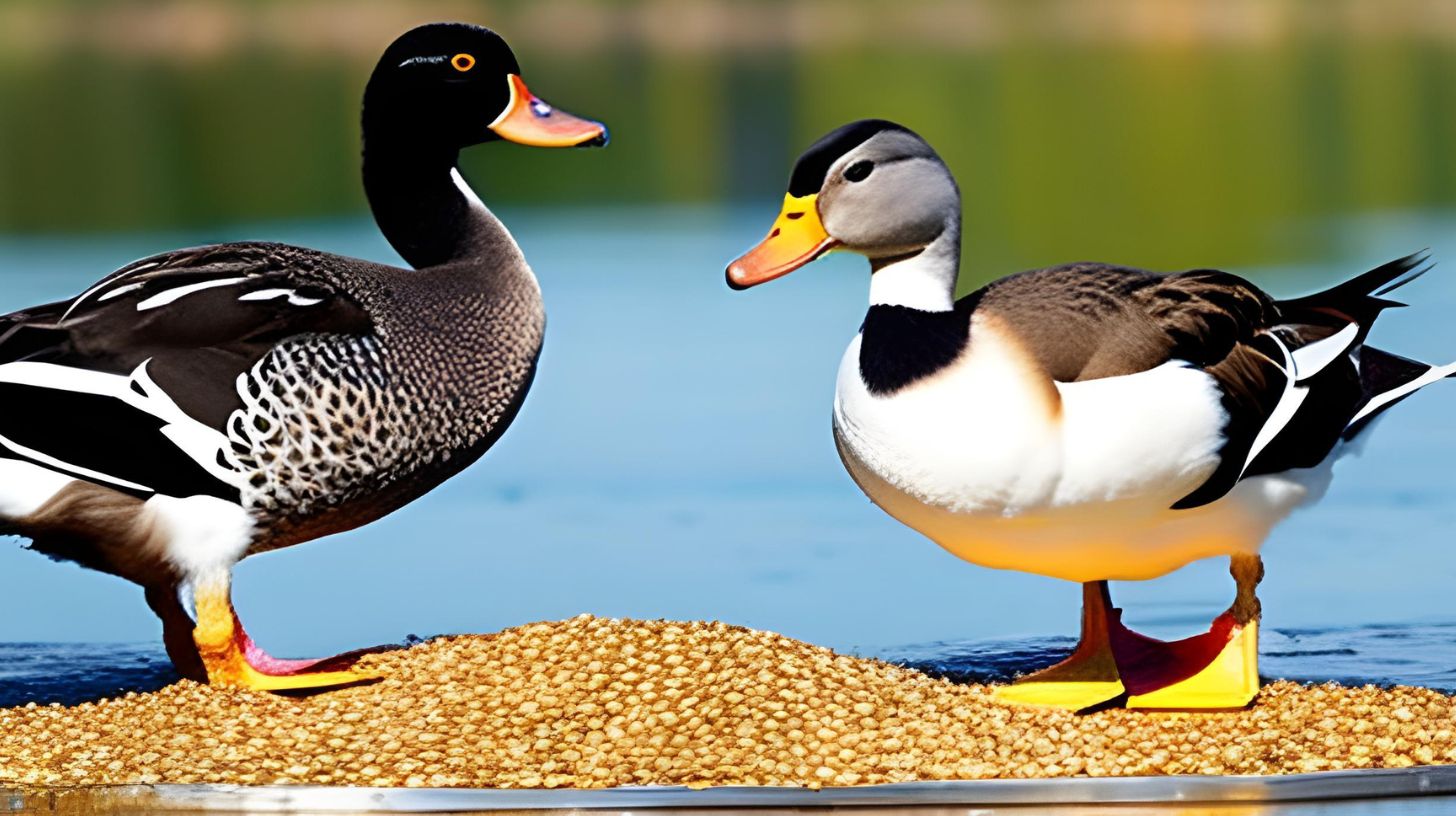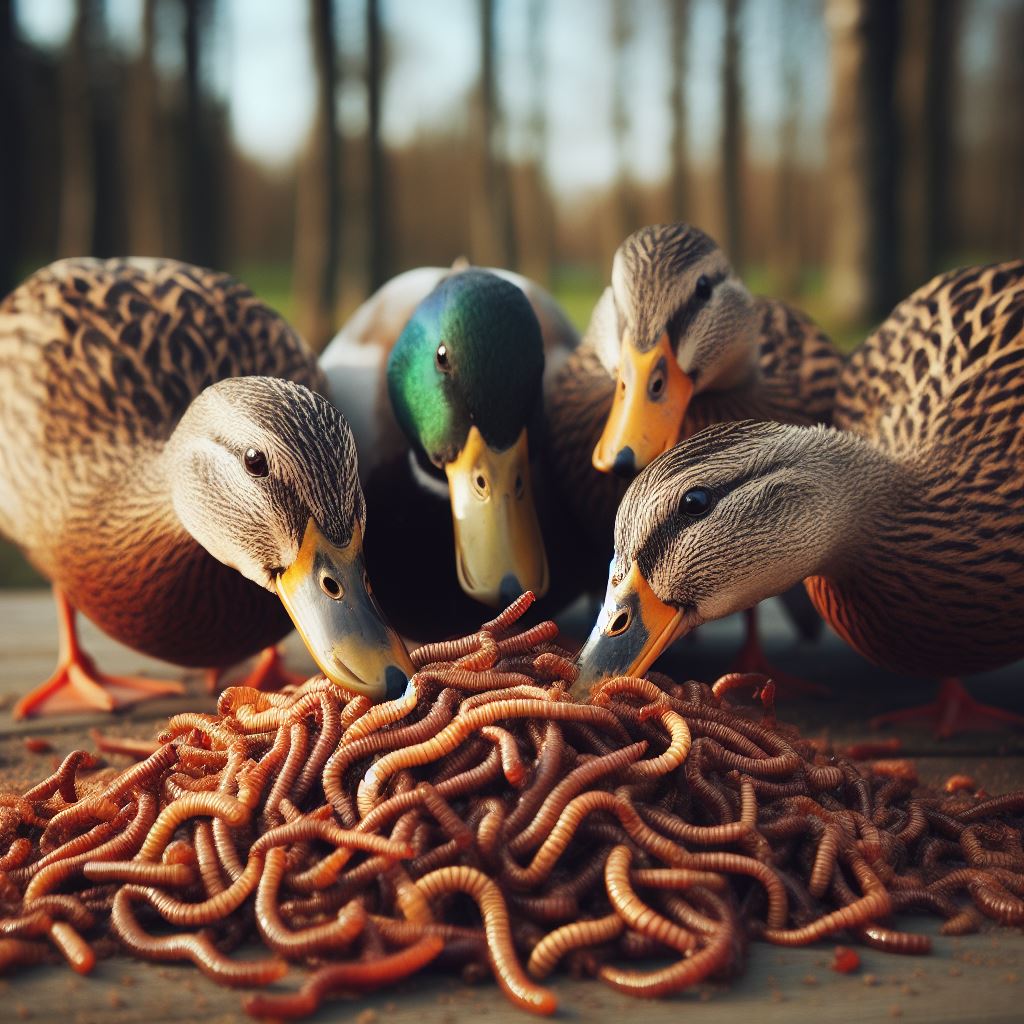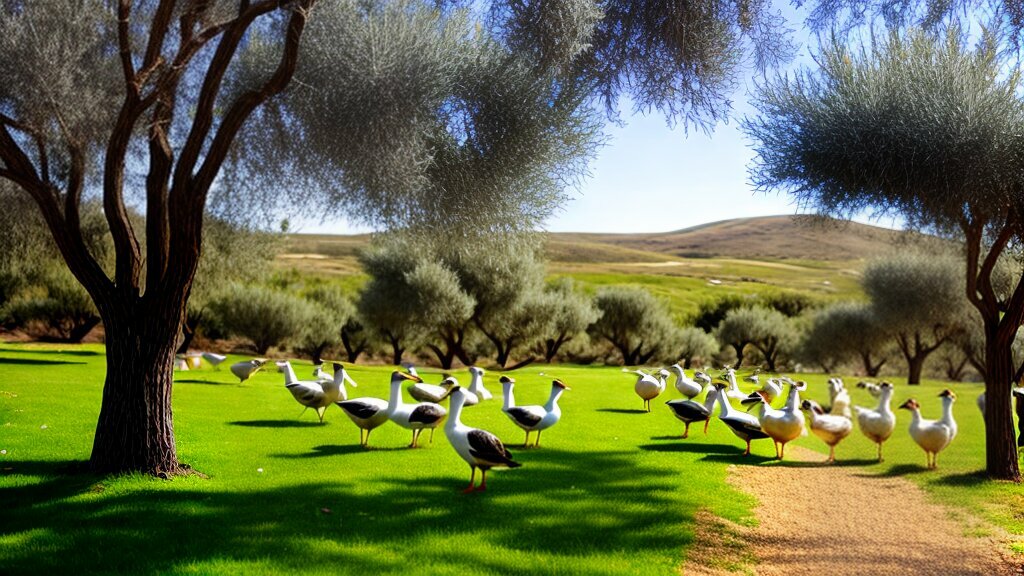Can Ducks Eat Lentils?

Table of content:
The question of whether ducks can eat lentils is an interesting one. As omnivorous birds, ducks can eat a wide variety of foods. Lentils are a highly nutritious legume that provides substantial protein and fiber. However, some preparation may be needed to make lentils digestible and safe for ducks. Let’s take a deeper look at duck nutrition, the benefits of lentils, and the best practices for feeding lentils to ducks.
Ducks Have Diverse Diets and Digestive Systems
Ducks are opportunistic eaters that forage for a diverse diet in the wild. A duck’s natural diet consists of:
- Aquatic plants and grasses
- Insects and larvae
- Snails, tadpoles and small fish
- Seeds, nuts and grains
Their digestive system allows them to derive nutrition from both plant and animal foods. Ducks have muscular gizzards that grind up fibrous plant material. They do not have crops for storage like chickens do, so they must fill up small meals throughout the day.
Ducklings under 3 weeks old have different dietary needs than adult ducks. They require high protein feeds for rapid growth. Ducklings can forage alongside hens, but require starter feeds rich in amino acids. Once feathered, young ducks gradually transition to the adult diet.
Lentils Offer Benefits Like Protein and Fiber
Lentils are edible legumes that come in colors ranging from yellow and red to green and black. Some common varieties are brown, green, puy and beluga lentils. Here are some of the notable nutrients lentils contain:
- Protein: Lentils contain 20-30% plant-based protein by weight. This makes them one of the highest protein sources among legumes.
- Fiber: A cup of cooked lentils provides 15-16 grams of fiber. The fibers feed good gut bacteria in ducks.
- Folate: Lentils are an excellent source of folate, providing 90% of the recommended daily intake. Folate aids duck growth and development.
- Minerals: Lentils contain high levels of iron, magnesium, potassium and zinc. Iron is critical for oxygen transport in ducks.
For humans, lentils are valued as an affordable, nutrient-dense food. They can supplement limited meat intake, especially in developing countries. The nutrients in lentils may similarly benefit ducks in moderation.
Some Preparation Is Needed Before Feeding Lentils
While lentils offer nutritional benefits, they cannot be fed raw and unprocessed. Here are some special considerations for preparing lentils for ducks:
- Phytates: Raw lentils contain phytates or phytic acid that binds to minerals and reduces absorption. So lentils must be cooked to reduce phytates.
- Lectins: Uncooked lentils have lectins that can irritate the intestinal tract. Proper cooking neutralizes lectins. Sprouting lentils for 1-2 days before cooking can further reduce lectins.
- Flatulence Factors: Lentils contain oligosaccharides that can cause excess gas and discomfort in some ducks. Cooking helps break down these compounds.
Soaking, sprouting and thoroughly cooking lentils is necessary before feeding them to ducks. The lentils should be soft enough to mash or grind down for young ducklings.
Potential Benefits of Cooked Lentils for Ducks
When properly prepared, incorporating some cooked lentils into a duck’s diet can provide certain advantages:
- Protein for Growth: The substantial protein in lentils can help growing ducks build strong muscles and feathers. The aminos promote development.
- Energy and Calories: Lentils offer significant carbohydrates and calories for energy. Complex carbs break down slower than simple carbs.
- Gut Health: The fibers and prebiotics in lentils may improve gut bacteria balance and digestive health in ducks. More research is needed on this.
- Affordability: For duck owners on a budget, lentils provide relatively inexpensive nutrition. Cooking dry lentils from scratch costs a fraction of processed feeds.
- Foraging Enrichment: Scattering small amounts of cooked lentils for ducks to forage encourages natural behavior. This provides mental stimulation.
Despite the benefits, lentils should not become a staple or primary feeding source. A diverse diet is healthiest for ducks.
Potential Risks of Overfeeding Lentils
Feeding too many lentils may also pose some problems for duck health:
- Nutritional Imbalances: Lentils are high in some minerals but lower in others like calcium. Excess lentils could create deficits of other nutrients.
- Weight Gain: Lentils are energy and calorie dense. Overfeeding risks excess fat gain, which puts stress on ducks’ legs and organs.
- Crop Impactions: Dry lentils expanding in the crop can clog the esophagus. This is rare but requires urgent veterinary care.
- Allergic Reactions: Some individual ducks may be allergic or sensitive to lentils. Observation is needed to watch for adverse reactions.
- Anti-Nutrient Overdose: Overdosing on lectins, phytates or trypsin inhibitors from undercooked lentils taxes the system.
The key is moderating the amount of lentils fed and properly preparing them. They should never become the full meal.
Best Practices for Feeding Lentils
Here are some tips for safely incorporating lentils into a duck’s diet:
- Always cook lentils thoroughly until very soft. Undercooked lentils are dangerous.
- For young ducklings, puree or finely mash cooked lentils to prevent choking.
- Limit lentils to 5-10% of the total diet. They are just one supplemental food.
- Mix lentils with grains like rice, oats or barley rather than feeding plain.
- Keep the overall diet diverse with leafy greens, vegetables, insects and eggs.
- Monitor ducks for any signs of bloating, discomfort or other issues.
- Remove uneaten lentils within 1 hour to prevent spoilage if feeding wet.
With proper precautions, lentils are an excellent supplemental food. But they should not become a duck’s mainstay.
Can Ducks Eat Lentil Sprouts?
Sprouting lentils for just 1-2 days before cooking increases digestibility and reduces anti-nutrients. The sprouting process starts breaking down the lectins, phytates, trypsin inhibitors and oligosaccharides in lentils.
Sprouts also increase protein content and improve amino acid balance. The vitamin C content rises as well.
However, lentil sprouts are still tough and hardly digestible for ducks. Sprouted lentils need to be thoroughly cooked. Cooked sprouted lentils provide more nutrition than unsprouted. Overall, properly sprouting and cooking lentils boosts their benefits for ducks.
Can Ducks Eat Raw or Dried Lentils?
Neither raw nor dried lentils in their uncooked state should be fed to ducks. As covered earlier, the lectins and other anti-nutrients in raw, dried lentils make them toxic and indigestible for ducks.
Eating them raw can seriously irritate the digestive tract. The phytates and other compounds also prevent proper nutrient absorption.
Only after sprouting, soaking and slow cooking are lentils safe for ducks. The lentils must become fully soft, mushy and broken down. So raw or dried lentils are dangerous, while cooked lentils can provide benefits.
Can Ducks Eat Uncooked Lentils?
Similarly, uncooked lentils, whether just soaked or still firm after brief cooking, should not be fed to ducks. Anti-nutrients will still be present unless the lentils become completely soft.
Partially cooked lentils may seem safe but remain difficult to digest. Their lectins and other chemicals can scour and damage the gut lining of ducks, causing inflammation or other issues.
So it’s critical to thoroughly and slowly cook lentils until they fall apart and become mush. Cooking time depends on the variety. Undercooking poses risks, so err on the side of overcooking when in doubt.
Conclusion
Yes – ducks can eat lentils, with some caveats. The protein, fiber and nutrients lentils provide can benefit duck health and growth when included as a supplementary food. However, lentils must be properly prepared through sprouting, soaking and especially thorough, slow cooking. Raw, dried or undercooked lentils should never be fed, as their anti-nutrients can be dangerous.
When feeding lentils, moderation is key. They should be one part of a diverse diet to prevent imbalances or overfeeding. With prudence in preparation and amounts, incorporating cooked lentils can diversify a duck’s diet.
Further research is still needed on optimal lentil feeding practices for ducks. But the general guidance indicates they can be a healthy treat when fed carefully.
Welcome. I’m Adreena Shanum, the proud owner of this website, and I am incredibly passionate about animals, especially poultry. I founded adreenapets.com as a labor of love, stemming from my desire to share my knowledge and experiences with poultry enthusiasts worldwide.




